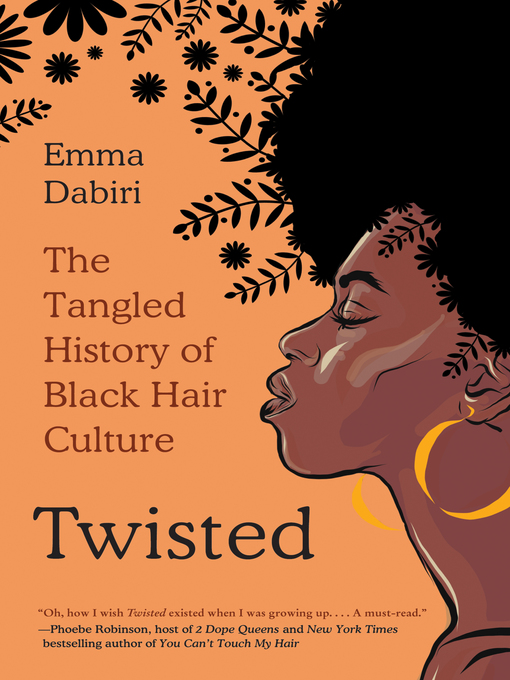A Kirkus Best Book of the Year
Stamped from the Beginning meets You Can't Touch My Hair in this timely and resonant essay collection from Guardian contributor and prominent BBC race correspondent Emma Dabiri, exploring the ways in which black hair has been appropriated and stigmatized throughout history, with ruminations on body politics, race, pop culture, and Dabiri's own journey to loving her hair.
Emma Dabiri can tell you the first time she chemically straightened her hair. She can describe the smell, the atmosphere of the salon, and her mix of emotions when she saw her normally kinky tresses fall down her shoulders. For as long as Emma can remember, her hair has been a source of insecurity, shame, and—from strangers and family alike—discrimination. And she is not alone.
Despite increasingly liberal world views, black hair continues to be erased, appropriated, and stigmatized to the point of taboo. Through her personal and historical journey, Dabiri gleans insights into the way racism is coded in society's perception of black hair—and how it is often used as an avenue for discrimination. Dabiri takes us from pre-colonial Africa, through the Harlem Renaissance, and into today's Natural Hair Movement, exploring everything from women's solidarity and friendship, to the criminalization of dreadlocks, to the dubious provenance of Kim Kardashian's braids.
Through the lens of hair texture, Dabiri leads us on a historical and cultural investigation of the global history of racism—and her own personal journey of self-love and finally, acceptance.
Deeply researched and powerfully resonant, Twisted proves that far from being only hair, black hairstyling culture can be understood as an allegory for black oppression and, ultimately, liberation.


